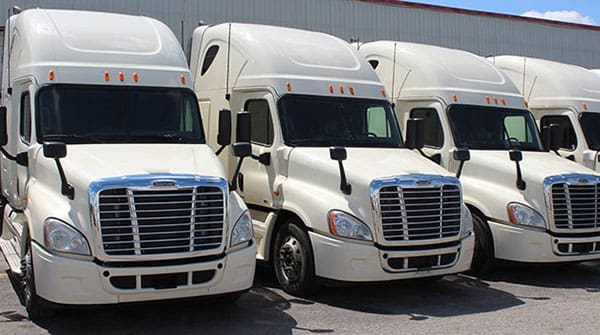
Image courtesy Challenger Motor Freight
As the demand for transportation services continues to rise, Canadian trucking company Challenger Motor Freight is turning the tide by investing in the future, providing a cutting-edge training program for the next generation of truck drivers.
This initiative, an industry-first, promises not just to tackle the looming driver shortage, but also revolutionize the way the trucking industry operates, company leaders said.
Challenger Motor Freight, one of Canada’s largest trucking firms, is harnessing advanced technology and innovative teaching methods to upskill new entrants into the industry. Their program is designed to equip new drivers with necessary skills, promoting a safer and more efficient transportation network.
In a sector where the average age of drivers is increasing, and a considerable number are approaching retirement, the trucking industry is faced with the pressing need to attract fresh talent, Truck News reported in 2019.
At that time, Stephen Laskowski, president of the Canadian Trucking Alliance and Ontario Trucking Association, told guests at an industry event that the trucking sector would face a shortage of close to 50,000 drivers by 2024.
He said the opening of the Challenger Motor Freight academy showed the company’s ability to take issues head on.
Four years later, the program is still going strong.
“We aim to provide a platform for aspiring truck drivers to acquire the skills they need, along with a clear understanding of the industry’s evolving demands,” Paul Weatherbie, Marketing Communications Manager for Challenger Motor Freight, said in an interview. “We’re not just training drivers – we’re cultivating a new generation of transportation professionals.”
Advances in technology are changing the skills needed to succeed on the road. Challenger’s Transportation Training Academy seeks to address these challenges head-on.
The training program encompasses both practical and theoretical aspects, according to online materials. Trainees learn everything from operating modern trucking equipment, efficient fuel management, electronic logging systems, to comprehensive safety procedures. In addition, they are guided through the ever-changing regulatory environment, ensuring they can navigate complex rules and guidelines with ease.
But there’s also a push for greater diversity. Across North America, women are entering the truck driving industry in record numbers, breaking down barriers along the way, Transport Dive reported.
Challenger’s training academy embraced this change early on.
“We are steadily seeing increases in students, and we’re seeing a wide diversity of students as well,” Nick Rowland, the program’s Admissions Coordinator, said in a YouTube interview last year. “In our next class starting next week, half of it is female.”
The training program also emphasizes advanced driver assistance systems (ADAS), which reflect the industry’s ongoing digital transformation. Trainees gain first-hand experience with tools like adaptive cruise control, lane-keeping assistance, and automatic emergency braking. By embracing such technologies, Challenger Motor Freight is preparing its trainees to lead in a rapidly changing industry, Weatherbie said.
While the focus on technology and modern equipment is crucial, the program does not overlook the importance of personal development. Soft skills like communication, problem-solving, and stress management are emphasized, recognizing that truck drivers are not just operators, but crucial representatives of the company on the road.
“Our goal is to produce well-rounded drivers, ready to adapt to the challenges of the modern trucking world,” Weatherbie said. “The inclusion of personal development training enhances drivers’ ability to interact with clients and colleagues effectively, further enhancing their professional growth.”
The program has already seen significant success, with graduates securing jobs at Challenger and other trucking firms. As Challenger Motor Freight continues to focus on developing the next generation of truck drivers, their efforts could help drive meaningful change in the broader industry, company leaders said.
“In the face of so many demographic and technological challenges, our training program serves as a bridge to the future of transportation, solidifying the role of truck drivers in the digital age,” said Weatherbie.
This content is a joint venture between our publication and our partner. We do not endorse any product or service in the article.

